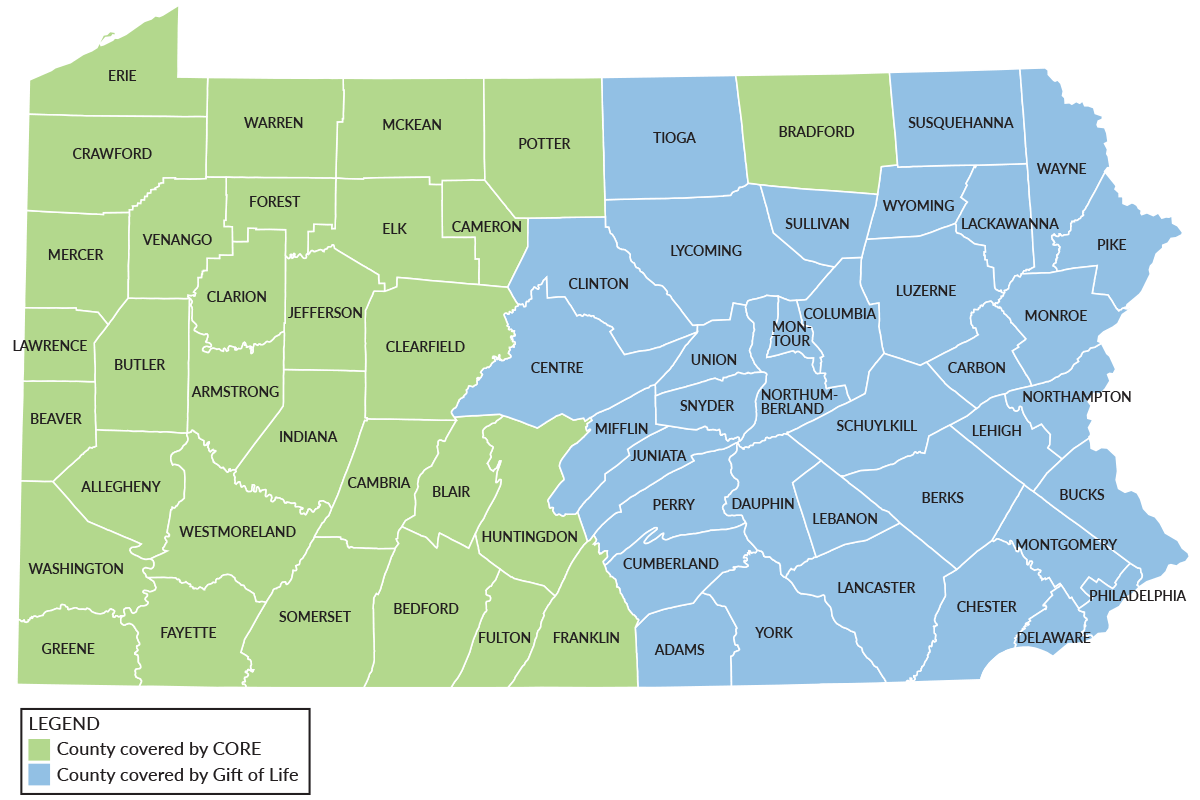Organ Donation
More than 118,000 men, women and children across the country are waiting for an organ transplant that can save their lives.
Become An Organ Donor and Make a Difference
The facts about organ donation are astonishing, and the cause is personal for many members of the Masonic Blood + Organ Donor Program.
If you have not previously registered as an organ donor on your Pennsylvania Driver’s License, please consider doing so today. While this program does NOT procure organs for members in need, we strive to provide assistance and resources to support them throughout the process.






